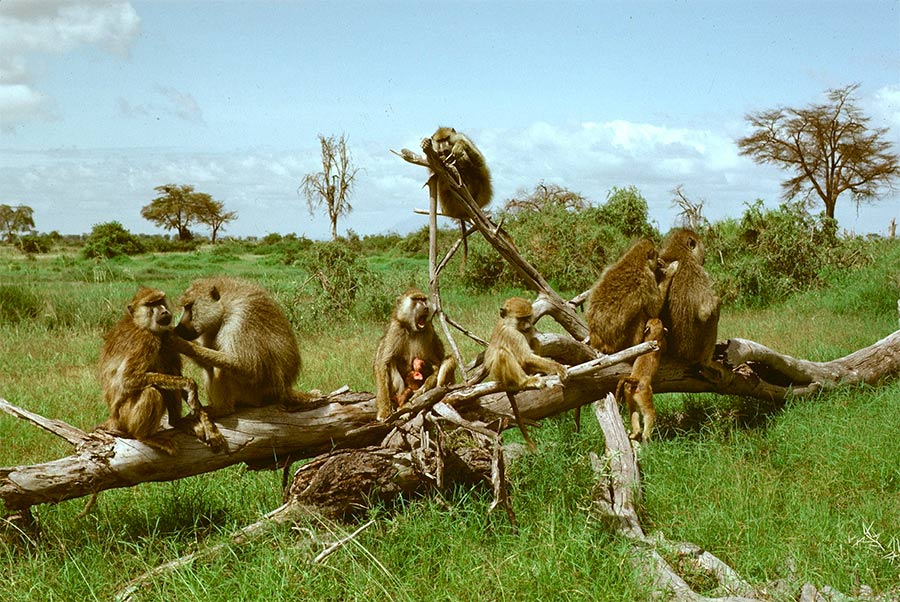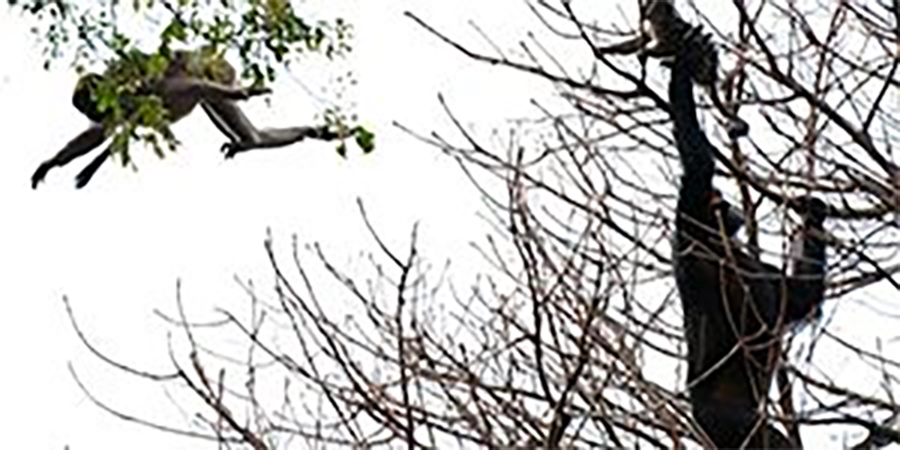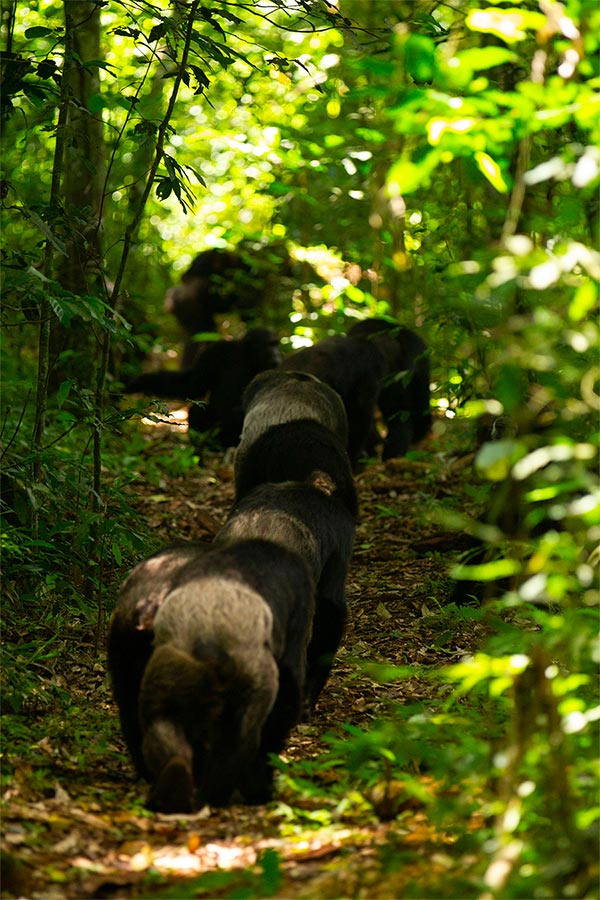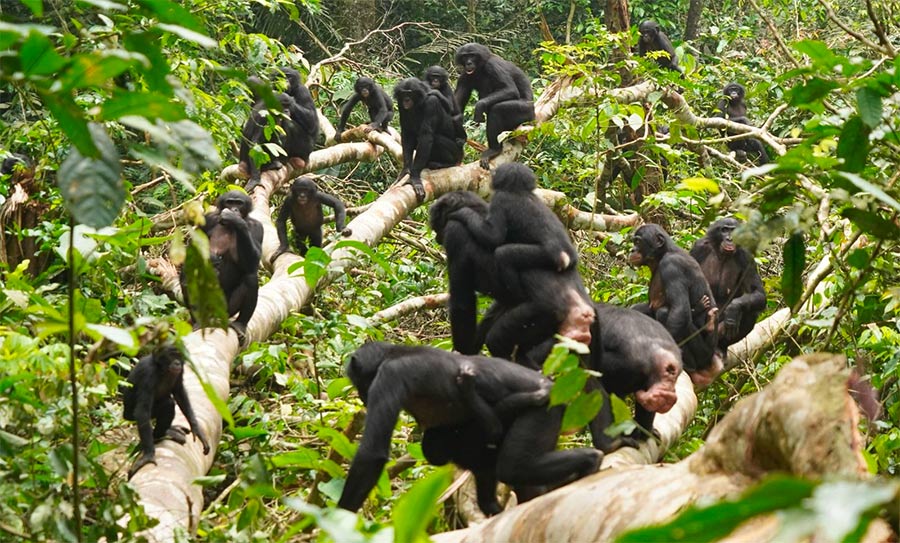- Many evolutionary anthropologists seek to understand whether human cooperation is simply a reflection of our primate ancestry, or if it is fundamentally different in some way.
- Cooperation will evolve if helping relatives increases the chances that shared genes will be passed on to the next generation.
Highlights
Humans are outliers among mammals in the extent to which we cooperate with one another. Many evolutionary anthropologists seek to understand whether human cooperation is simply a reflection of our primate ancestry or if it is fundamentally different in some way. To answer this question, we need to understand the ways in which nonhuman primates cooperate and why.
Cooperation—behaving in a way that benefits others—is initially puzzling because it seems that individuals who act in their own self-interest would be more likely to survive and reproduce. But, on closer examination, there are several ways in which helping others can also benefit oneself.
Cooperation with Relatives
Cooperation will evolve if helping relatives—like brothers and sisters or parents—increases the chances that shared genes will be passed on to the next generation. In analyses of long-term data on wild baboon groups, researchers have shown that female baboons groom, support, and form strong, stable bonds with sisters (read more about living in groups).

A group of baboons grooming each other. Image credit Joan Silk
Among wild chimpanzees, researchers found that adult males in Ngogo, Uganda, preferentially groom, share food, and form coalitions with maternal brothers. Similarly, research among male chimpanzees at Gombe, Tanzania, showed that maternal brothers formed stronger social bonds than unrelated pairs did. However, at both sites, most cooperation occurs among “nonkin” or unrelated individuals. Therefore, kin selection cannot be the only explanation for cooperation in this species.
Cooperation with nonkin yields immediate benefits
Sometimes, it is in an individual’s immediate best interests to cooperate—that is, when they would benefit more by helping others than if they didn’t. Chimpanzees will often share meat with one another after a successful hunt. Research at Gombe supports the sharing under pressure hypothesis—a meat possessor is better off sharing because it reduces harassment by persistent beggars. The costs of sharing are more than compensated by the benefits of increased feeding efficiency in the face of fewer beggars. Chimpanzee hunting research supports the hypothesis that group hunts of red colobus monkeys by chimpanzees are simultaneous, independent attempts by multiple hunters, each trying to make a kill. With more hunters, each individual is more likely to succeed, even if they are not hunting as a team. The presence of keen “impact hunters” helps to encourage others to hunt.

Chimpanzees in pursuit of small monkeys. Image credit Ian Gilby
Alternatively, chimpanzees may benefit by hunting in a coordinated fashion that maximizes the chances that the group succeeds, with preferential sharing among those who participated. There is no evidence that such collaboration occurs at field sites in Gombe, Ngogo, and some other sites, but chimpanzees in Taï Forest, Cote d’Ivoire, have been observed working in teams.

Line of chimpanzees patrolling their territory. Image credit Kevin Langergraber
Cooperation with nonkin yields future benefits
In some cases, a cooperator may experience benefits long after the cooperative act. Reciprocal exchange occurs when the immediate costs of cooperating are recouped when the recipient returns the favor. At Ngogo, researchers found a reciprocal pattern of giving and receiving food, grooming, coalitionary support among male chimpanzees. While there was no evidence found that male chimpanzees at Gombe exchange of meat for grooming, the research team did find that closely-bonded males were more likely to form coalitions with one another, and alpha males exchange mating opportunities for grooming.

Bonobos in a group grooming session.
If helping others eventually leads to a larger social group, and a larger social group increases one’s own chances of reproduction, then cooperation will evolve. Other research at Ngogo has shown that male chimpanzees often participate in territorial border patrols if they don’t currently have offspring in the group, but are likely to reproduce later if the community thrives.
Written by Ian Gilby PhD, Kevin Langergraber PhD, Joan Silk PhD